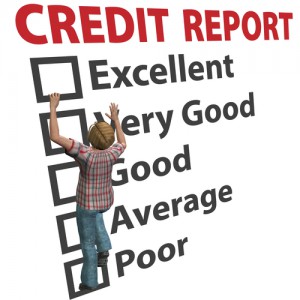 According to the 2015 Consumer Financial Literacy Survey by the National Foundation for Credit Counseling (NFCC), 52 percent of American adults do not review their credit score and only 23 percent said they checked it because they were making a major purchase. Your credit score gives you the power to secure lower interest rates on loans and get better credit offers. Good credit can even mean the difference between landing a job or being shut out by a nervous employer who thinks you can’t manage your finances. Before you make a big purchase, like a new car, ensure your credit is in the best shape possible to save yourself time, money and headaches. Here are some tips to get started:
According to the 2015 Consumer Financial Literacy Survey by the National Foundation for Credit Counseling (NFCC), 52 percent of American adults do not review their credit score and only 23 percent said they checked it because they were making a major purchase. Your credit score gives you the power to secure lower interest rates on loans and get better credit offers. Good credit can even mean the difference between landing a job or being shut out by a nervous employer who thinks you can’t manage your finances. Before you make a big purchase, like a new car, ensure your credit is in the best shape possible to save yourself time, money and headaches. Here are some tips to get started:
Know Your Credit Score
Your credit score can mean the difference between an affordable car loan and an interest rate beyond your reach. You can still purchase a vehicle with bad credit, but you will probably need a co-signer. Empower yourself before you start car shopping by knowing your credit score. Under federal law, everyone is entitled to a free credit report once a year from the three major reporting agencies: Equifax, Experian and TransUnion. Not sure how to read the report? Credit scores range from 300 to 850. A figure around 720 is considered good, with anything above that inching into the excellent category.
Fix Credit Mistakes
Once you have your reports in hand, scour them for any mistakes or inconsistencies. It’s not uncommon for erroneous information to wind up on credit reports. Bad debt usually falls off your report by itself after seven years, or 10 years for bankruptcy. But that’s a long time to wait to improve your score enough to get an affordable interest rate for an auto loan. However, the creditor who reported the debt can remove it. Write letters to each reporting agency making the request, and negotiate to pay off your balance or come up with a payment plan. They may say no, but continuing to send letters and examples of your payments and loyalty can help.
Once you set a plan in place to restore your credit, make sure it stays that way. Pull your credit report every year to look for inaccuracies. Diligently check your credit card statements and bank accounts for suspicious expenses. A service like LifeLock saves you time and money by monitoring your online identity and alerting you every time your information is used to take out a credit card. LifeLock also scours criminal websites that may be selling your data, replaces your cards and identification if your wallet is stolen, and helps with identity restoration if you fall victim to identity theft.
Get a Secured Credit Card
Still have lackluster credit? There are ways to quickly give your credit score a boost. Apply for a secured credit card through a bank or credit union that reports your activity to the credit bureaus. A cash deposit is usually required to take out the card to ensure you make payments, but it is refundable. Make on-time payments each month so the activity is reported to the three main credit bureaus.
Eliminate Multiple Balances
Credit cards with a large, revolving balances drag down your score. Pay more than the minimum balance each month, and eliminate debt from your cards instead of moving it around. Keep small balances off your cards and use just one instead. Even if you’re paying your car off, reducing your existing debt helps inch up your score, which will land you a better interest rate on a car loan.
